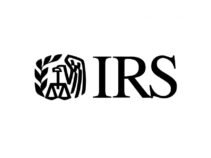Table of Contents
[Note: this article is one in a series about property tax in Italy. Refer to our main guide for an overview]
Expatax's mission is to make tax comprehensible for expats and retirees as they navigate Italy's fiscal landscape. For anyone considering moving to Italy, you may question if as an Italian tax resident, you will pay tax on real estate in the US, UK, or anywhere else outside Italy. Generally, Italian tax is applicable to such properties, though the amount is relatively modest. Moreover, available tax credits can reduce this burden. Besides this article, our TAX AI at the bottom of the page is at your service for further inquiries.
Italian Tax On Foreign Property: Report It And (Possibly) Pay On It
Italy's tax regulations stipulate that holding foreign property is subject to fiscal monitoring and specific taxation. These ownership declarations must be made annually by individuals, non-profit organisations, and simple companies. Essentially, taxpayers residing in Italy and owning foreign property must submit an annual income declaration to comply with the Italian tax authority. This declaration states that they own one or more properties abroad, where, and how much they're worth.
Differentiation by Property Type
To simplify the legislative fine print, these are the main foreign property ownership cases:
- Foreign properties taxed based on cadastral criteria- the income to declare in Italy matches the income determined from foreign cadastral criteria, minus any recognised expenses.
- Foreign properties taxed based on actual income from lease payments: Two scenarios apply here:
- If the lease income is not taxed in the foreign country, the rent received is taxed in Italy, reduced by 15% cost support.
- If the real income from rent is taxable in the foreign country, this income will also be taxed in Italy without a lump-sum reduction. However, a tax credit is available for taxes paid abroad.
- Foreign assets that do not produce income: Ownership of such properties does not have to be declared in Italy. However, taxpayers should fill in Fiscal Monitor (RW) table and pay the Property Intelligence and Investigation (IVIE).
How Is The IVIE Tax Calculated?
Italy's national tax on rented property applies to properties held by Italian taxpayers (you don't need to be an Italian citizen to have to pay it - anyone who's a tax resident of Italy needs to do so) beyond its borders. Introduced with the "Save Italy" Decree that was converted into Law n. 214/2011, this tax took effect from 2012.
The tax applies to property owners, holders of property rights, grantees, and landlords. The real estate's value abroad has a tax of 0.76%, relative to your share of ownership and period held within the tax year. If the property has been in possession for at least 15 days in a given month, that month is counted entirely for tax calculation. To simplify, the value of the property is its purchase or market value - but for properties in the EU/EEA, you can use the cadastral value if you prefer (this is often advantageous as several EU countries - France and Denmark to name two - tend to have lower property values reported in their land registries than the market value).
Example Calculation: Tax Owed On A Property In Denmark And Applicable Tax Credits
For example, if you own for the entirety of the tax year 50% of a house in Copenhagen valued at the equivalent of EUR 300,000, tax payable in Italy would - in principle - amount to EUR 1,140. However, you would deduct from this amount any foreign property tax - for instance, grundskyld or taxe foncière. If the final amount due to the Italian government is less than EUR 200, you don't have to pay anything. In practice, as property tax exists in many other countries, you could very well never pay any IVIE at all.
Exemptions From Italian Foreign Property Tax
Note that IVIE - like IMU - is not applicable to one's private principal home even if it is located abroad, or if you have a property abroad that is occupied by one's estranged spouse - as long as these aren't considered "luxury dwellings" under Italian law (you'll have to ask a specialist to have peace of mind that they won't as the Italian definition of "luxury dwelling" has a lot of latitude). It also does not apply to foreign property held through a foreign company - even if you own or part-own the company. Of course, you'll need to report your ownership of a foreign company, but tax is not generally due on ownership or part ownership of foreign companies. Again, this is one part of tax law where it's really important that your specific situation is assessed professionally.
Duty To Report Foreign Properties And Businesses
For Italian-resident taxpayers with foreign real estate, they must complete the RW Table in their Italian tax return. The Income Model Physical Persons (Modello Redditi Persone Fisiche) reserves the RW Table for monitoring financial activities and property investments held abroad.
This information is essential in determining wealth taxes on foreign properties and financial activities abroad. A taxpayer holding foreign real estate must indicate its value in this section, together with the ownership quota expressed as a percentage.
It is crucial that these assets are reported diligently and tax is calculated properly. If you have any other questions, feel free to ask TAX AI below.






